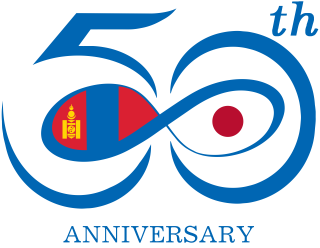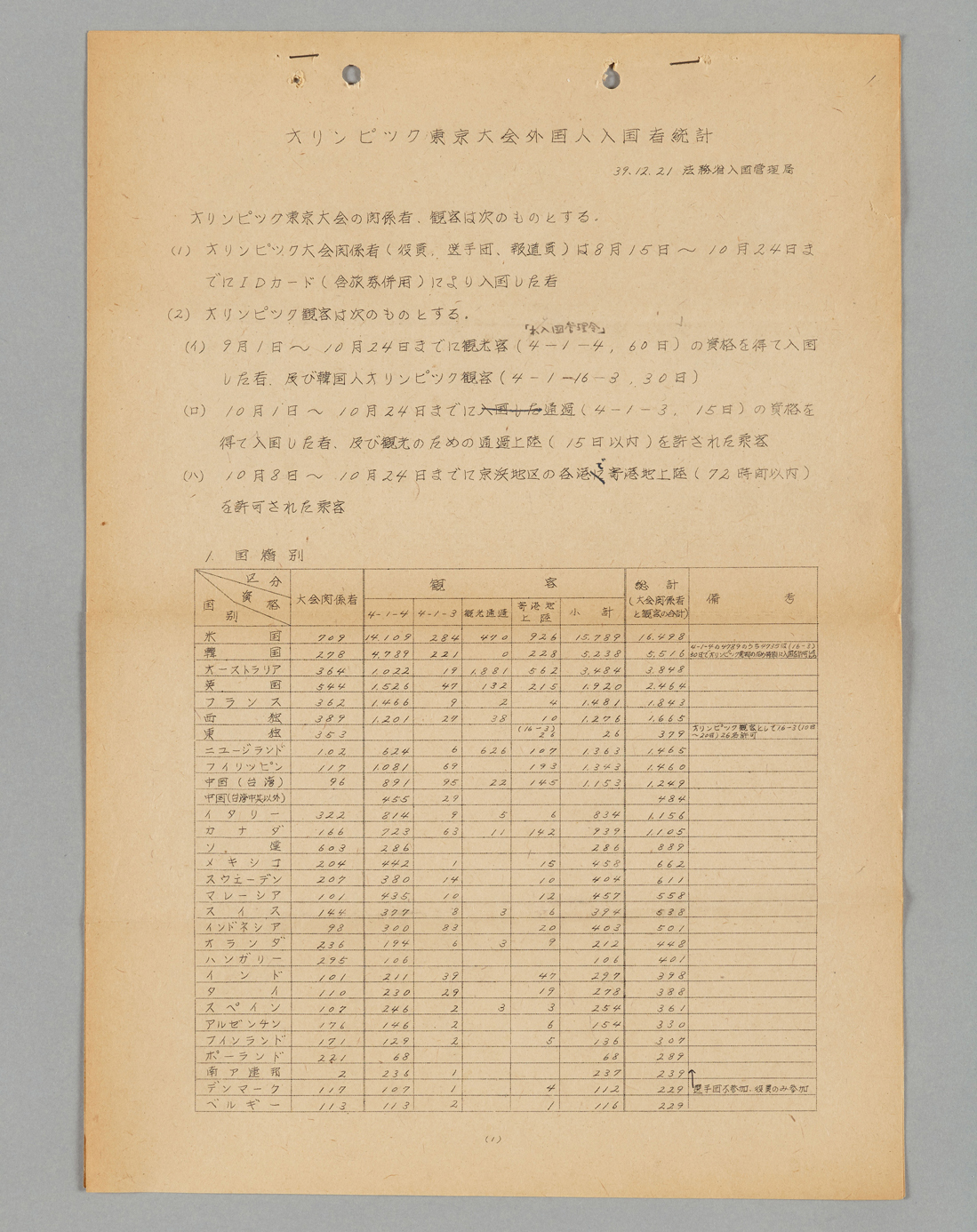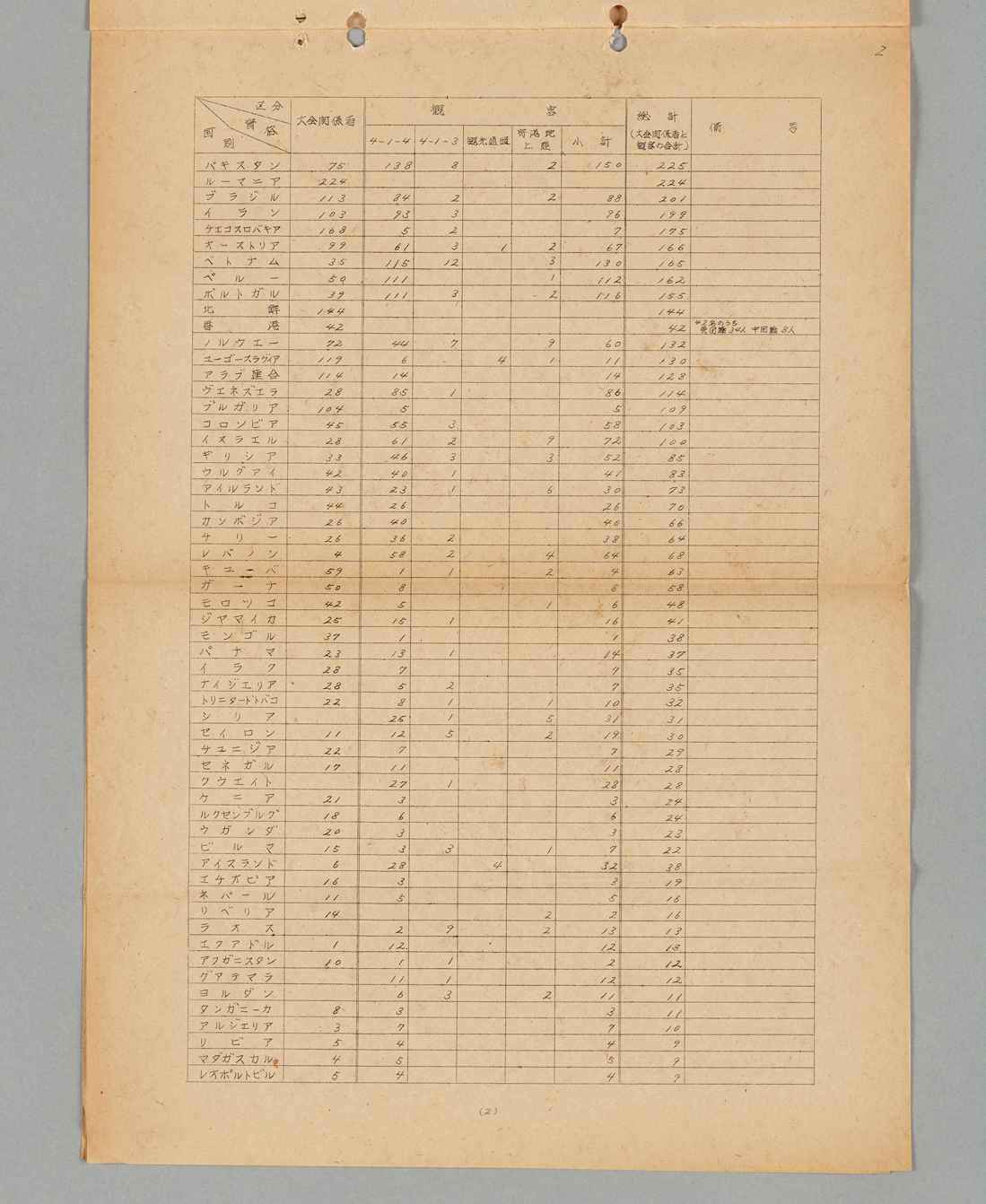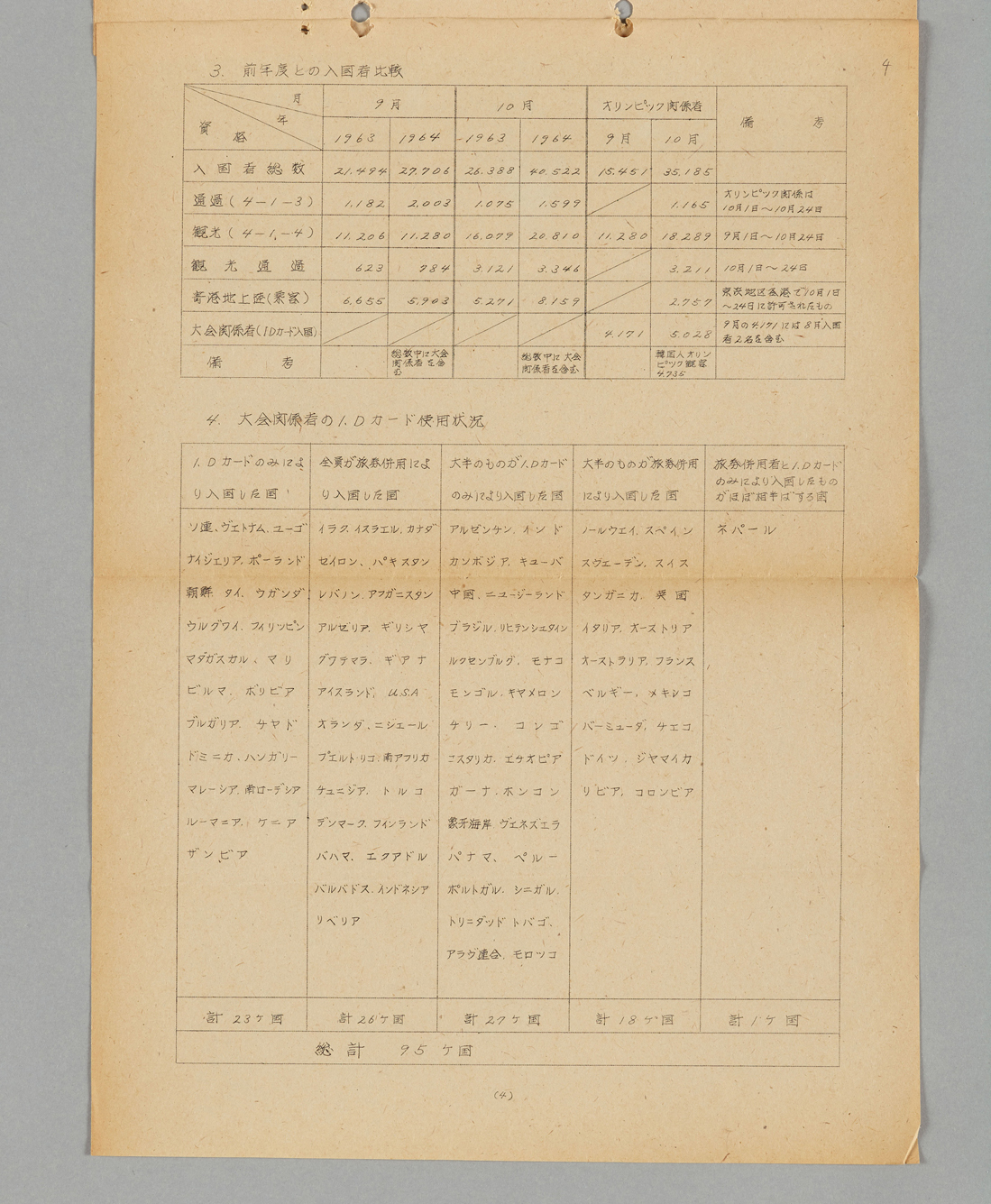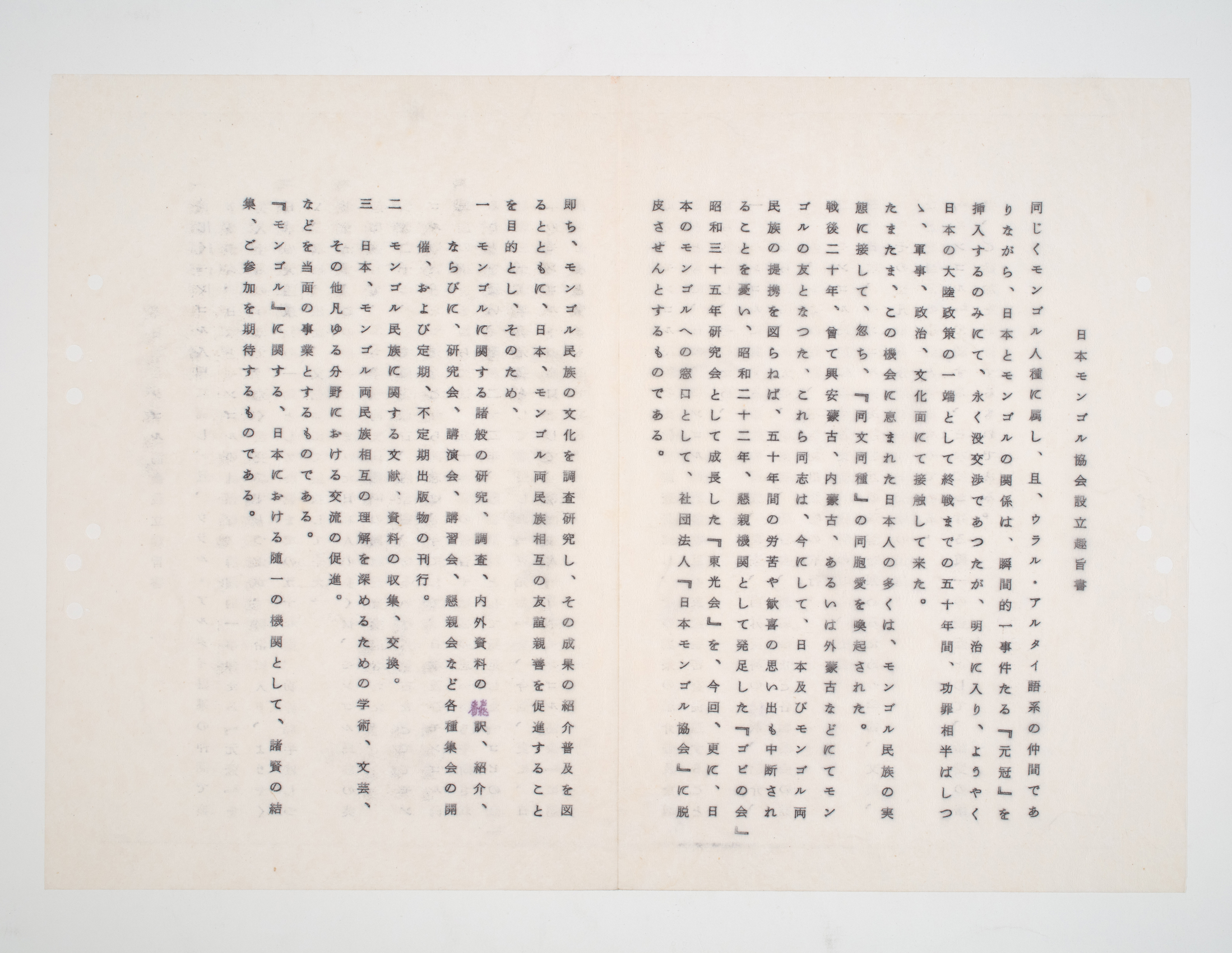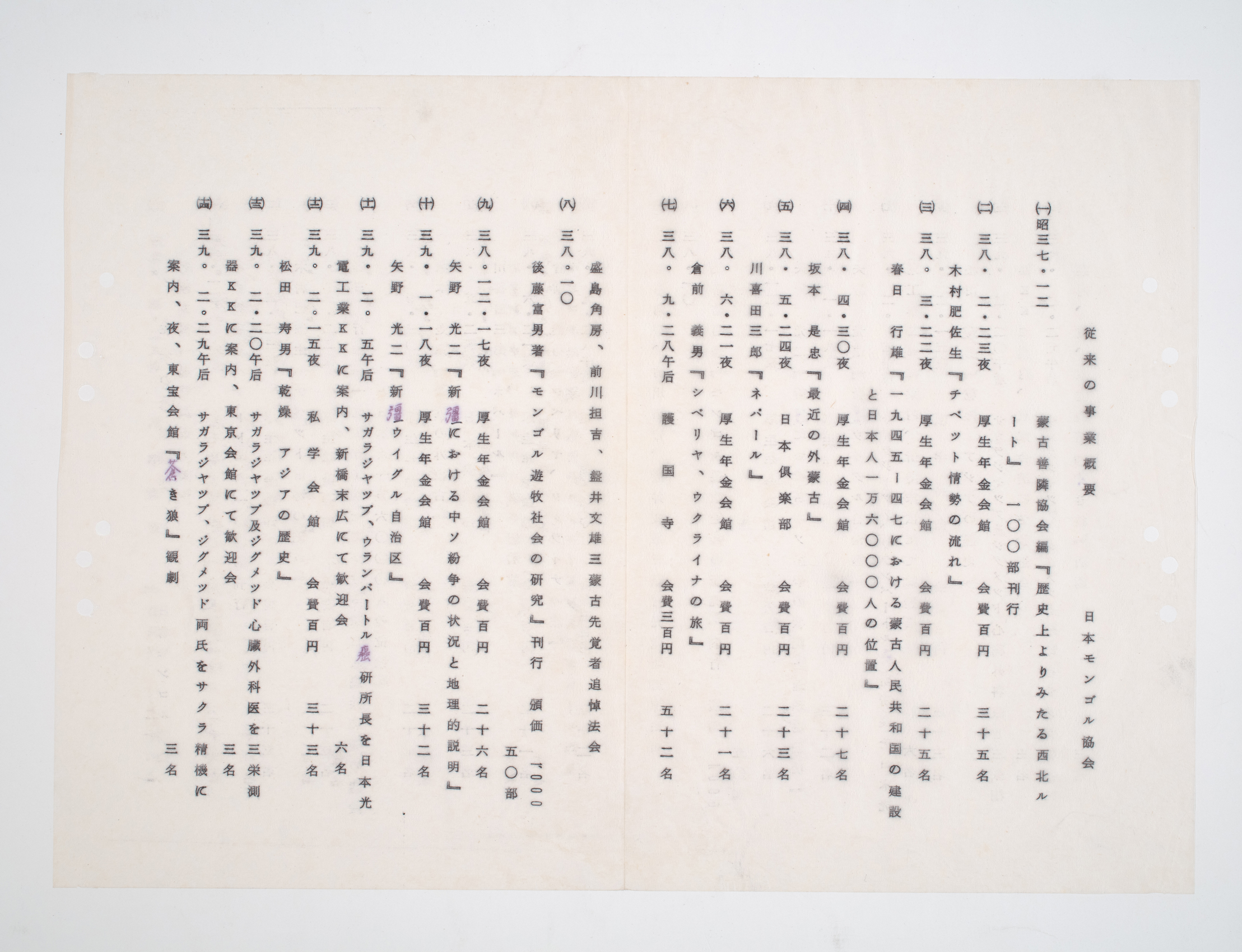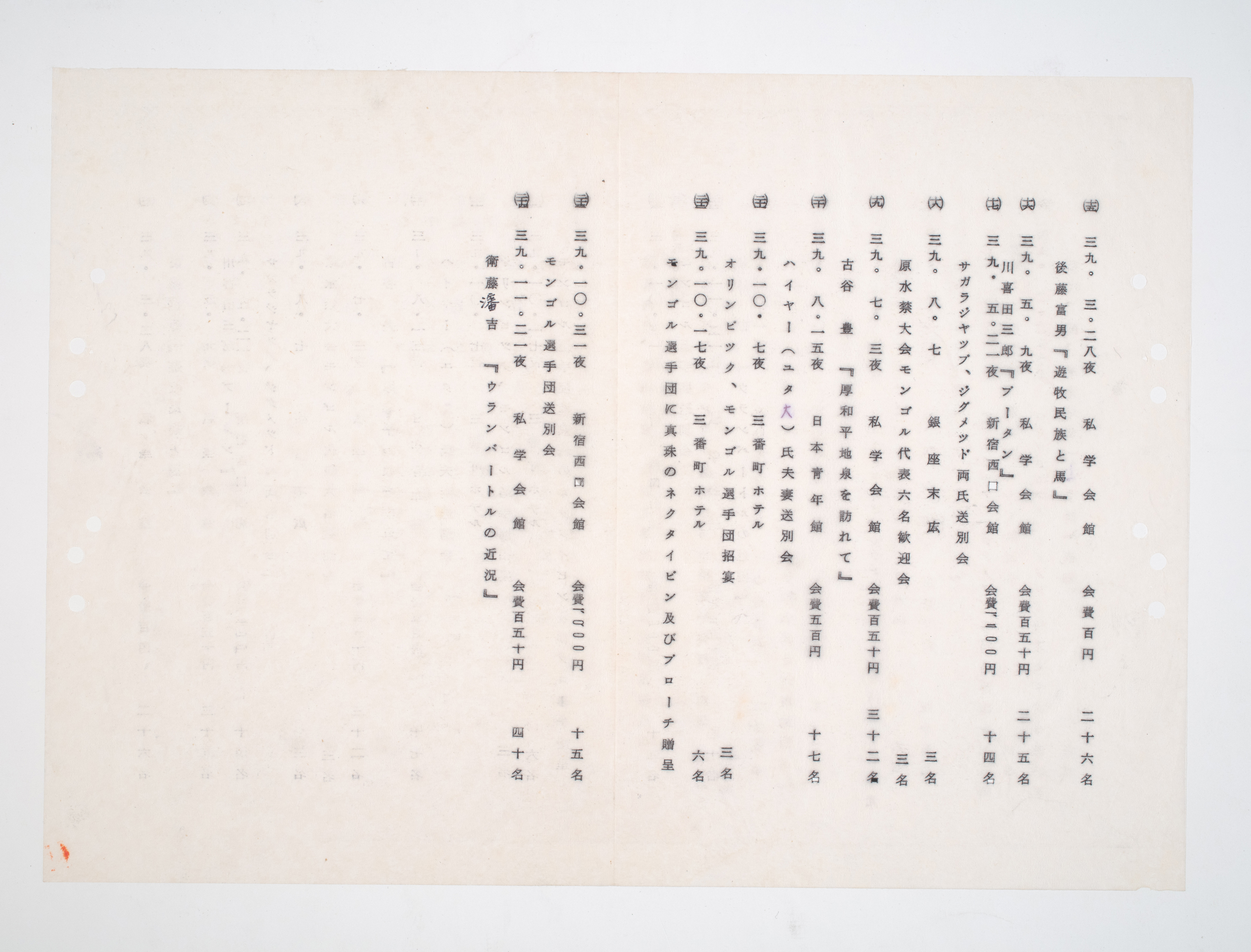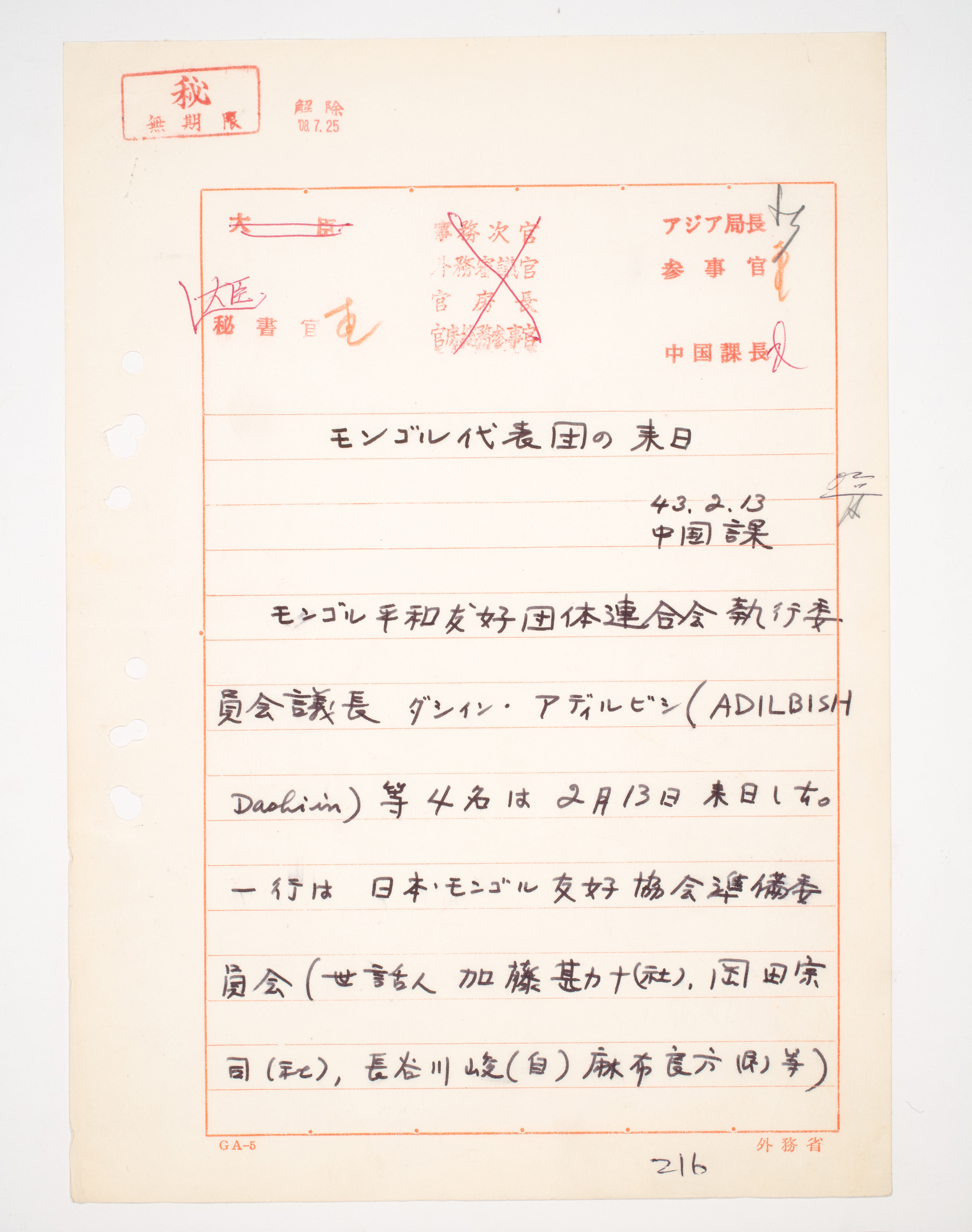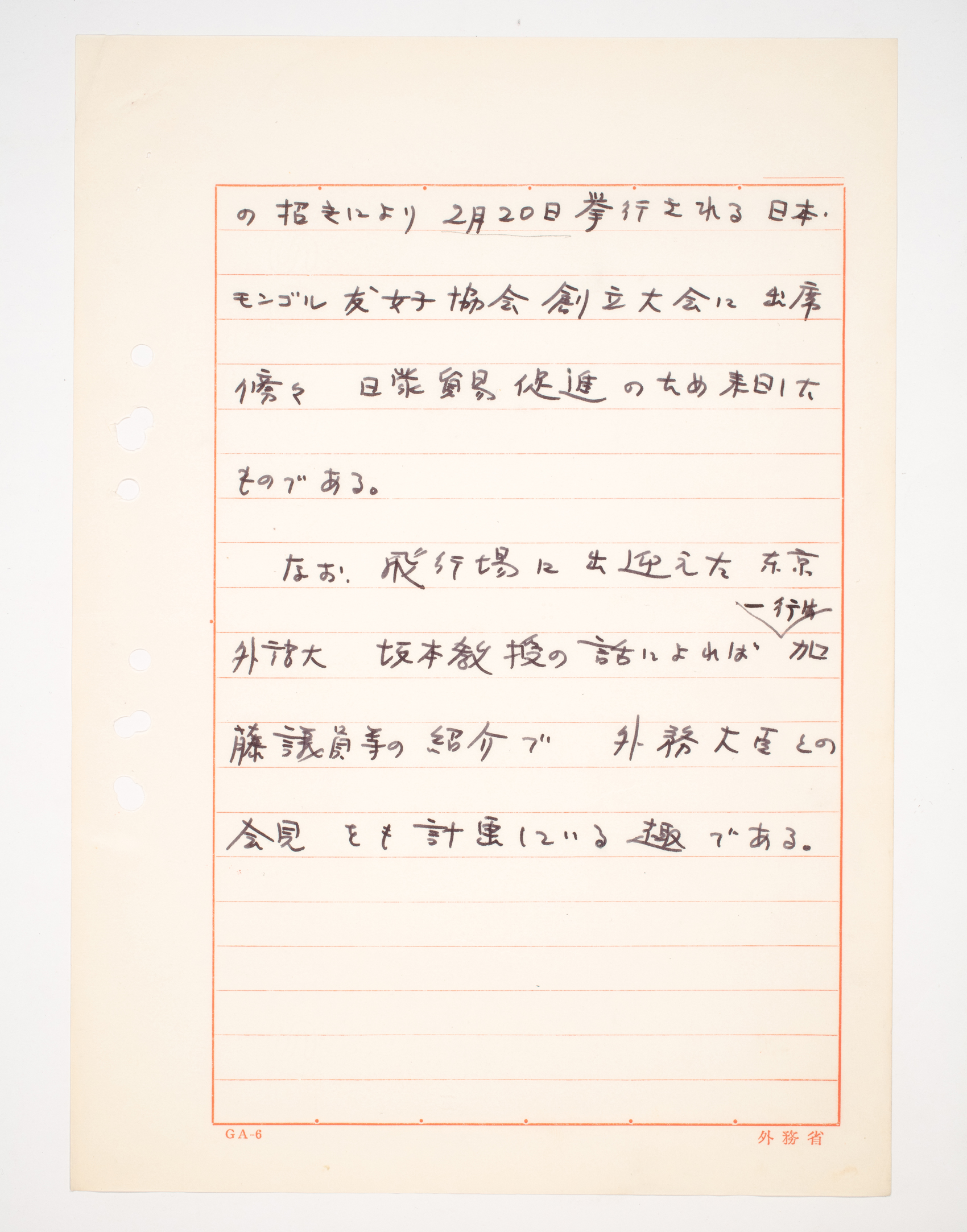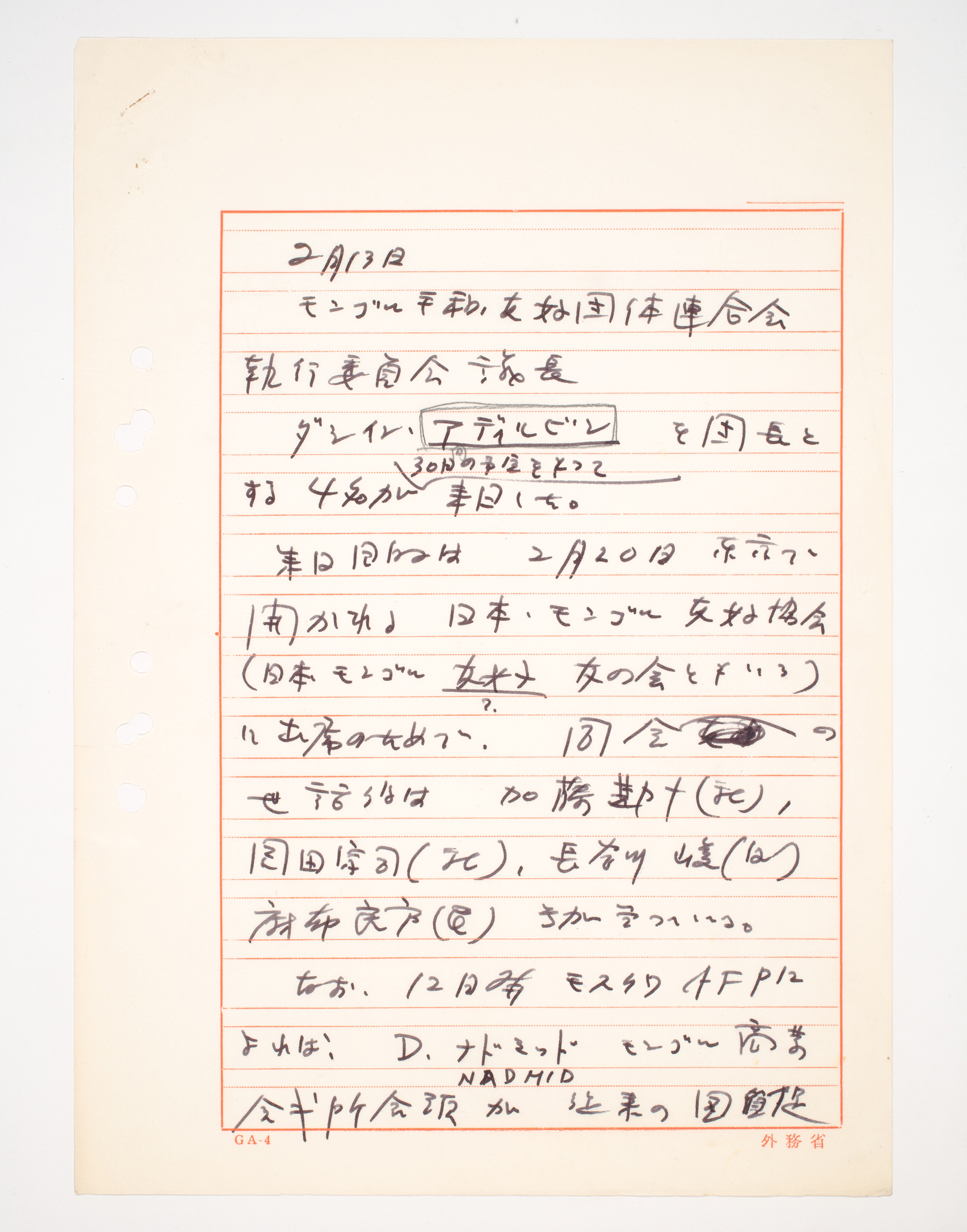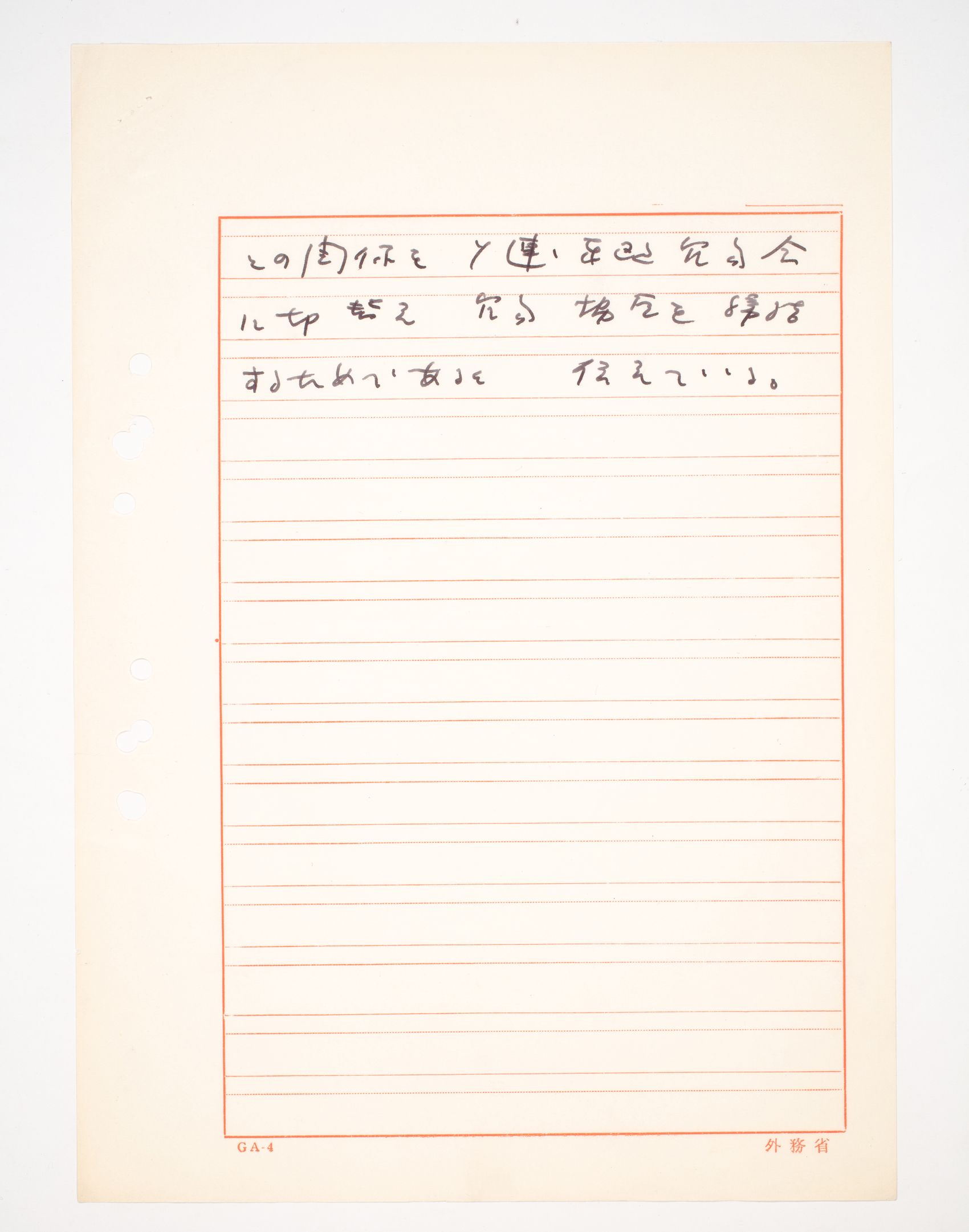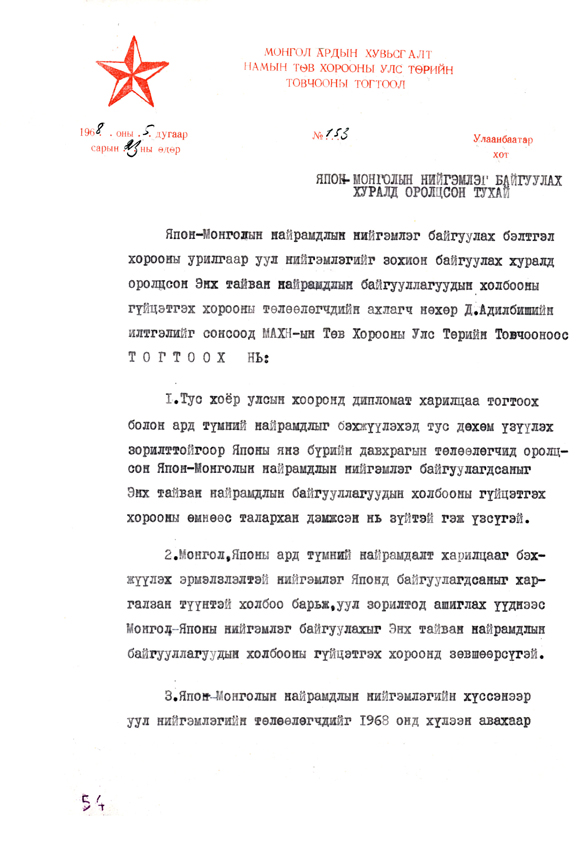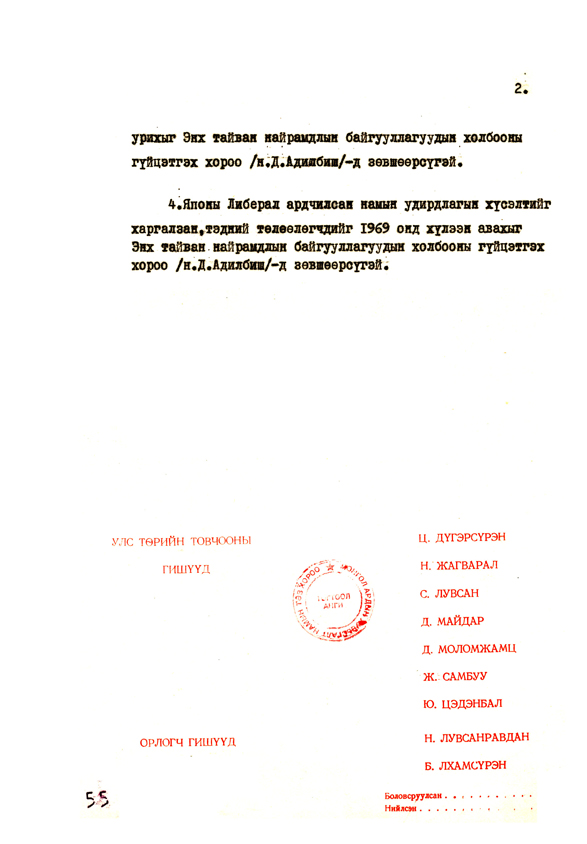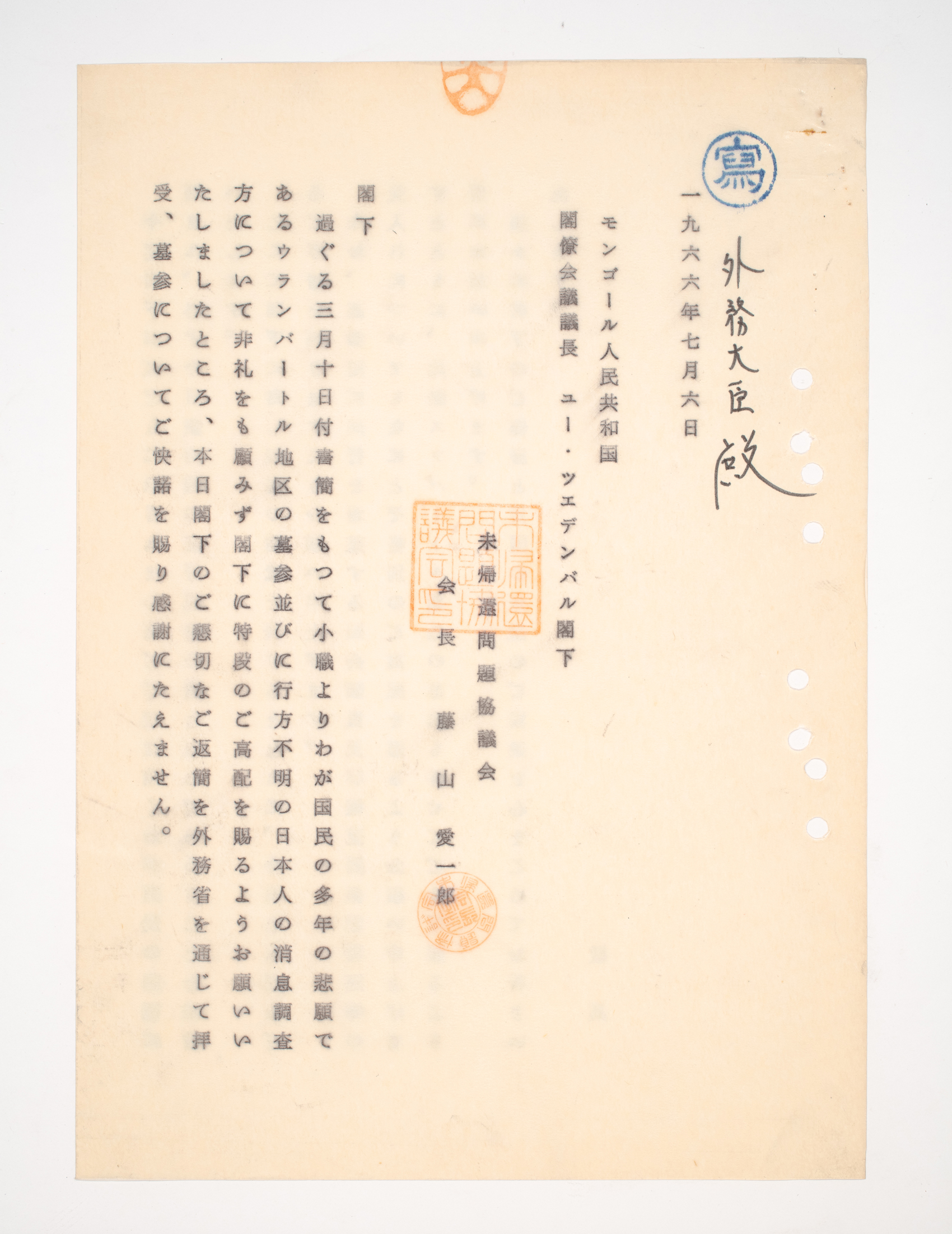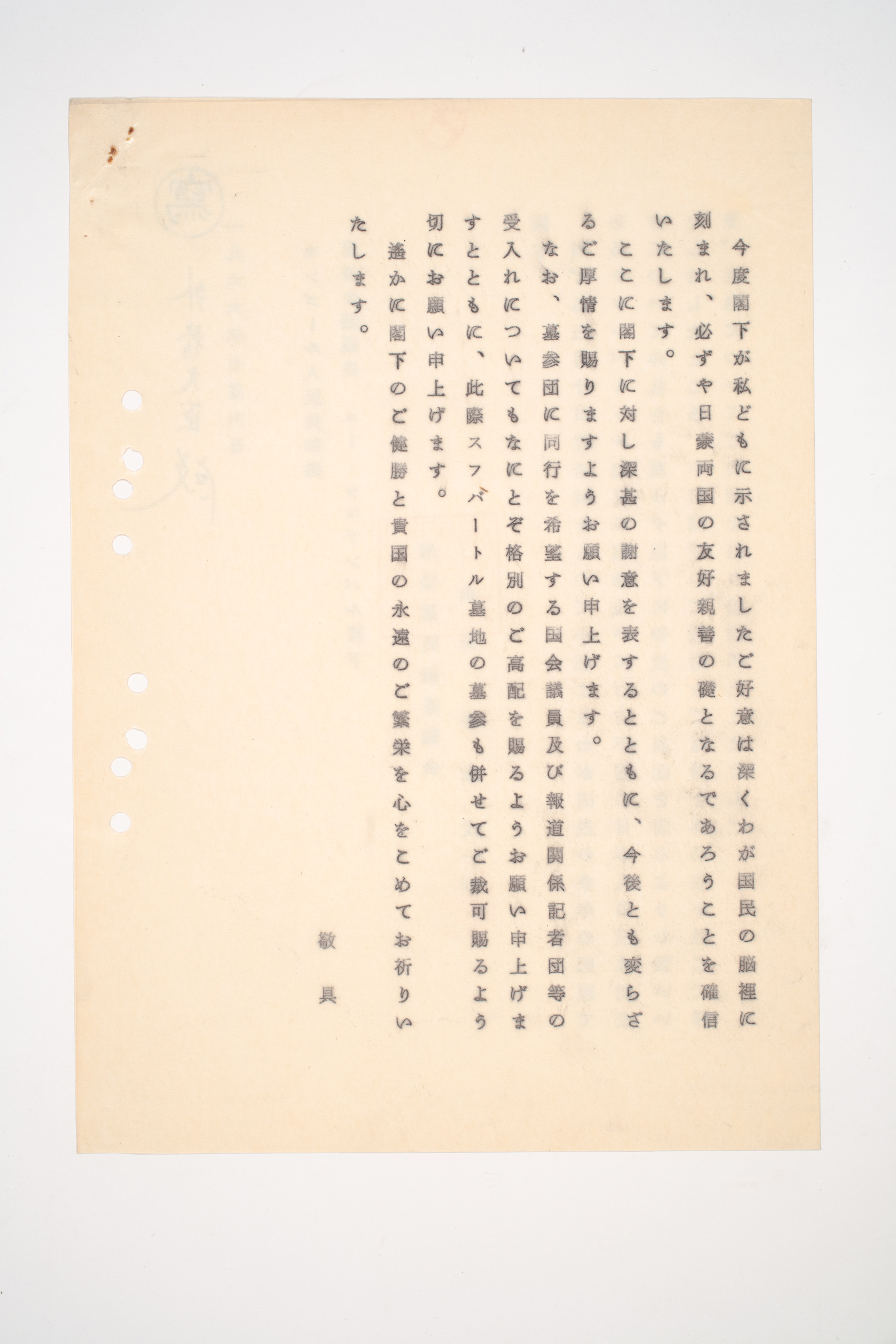ⅣCultural exchanges in the post-war period
(1950–60s)
Tokyo Olympic Games 1964
 The first participation in the Olympic Games by Mongolia
The first participation in the Olympic Games by Mongolia
The Olympic Games, a major event for international exchange through sports, also provided an opportunity to promote Japan-Mongolia exchange.
The 18th Olympic Games in Tokyo in 1964 were the first Olympic Games in which Mongolian delegates participated.
Japan, the host country of the Olympic Games, believed that this sporting event was an optimal opportunity to promote international exchanges and friendships of citizens of the world.
This document includes statistical data from the Physical Education Bureau of the Ministry of Education on the participants from various countries in the Olympic Games.
A total of 38 Mongolians, including team officials, players, press and a spectator, entered Japan and participated in five events: freestyle wrestling, shooting, cycling, gymnastics, and track and field.
Non-governmental exchanges
 Nippon Mongol Association
Nippon Mongol Association
Japanese-Mongolian relations were also encouraged not only by public exchanges but also by the private sector. On May 25, 1965, the Nippon Mongol Association was established by the people who had welcomed the Mongolian delegation to the World Conference Against Atomic and Hydrogen Bombs in August 1964, and who had supported the Mongolian athletes in the Tokyo Olympic Games in October 1964.
After the foundation of the Association, Chairman MATSUZAKI Akira visited Ulaanbaatar in 1971 at the invitation of Mongolia to celebrate its 50th anniversary of the Revolution, which preceded the establishment of diplomatic relations between Japan and Mongolia.
This material is the charter of the association (dated March 29, 1965).
It describes the purpose of the association "to research and study the culture of the Mongolian people, to introduce and disseminate the results of such research, and to promote mutual friendship between the peoples of Japan and Mongolia."
 Mongolia, Japanese Partnership Association
Mongolia, Japanese Partnership Association
In February 1968, the Chairman of the Executive Committee of the Union of Peace and Friendship Organizations of Mongolia,
D. Adilbish (former Minister of Foreign Affairs of Mongolia), and three other representatives came to Japan to attend the general meeting to establish the Mongolia, Japanese Partnership Association. This was because in Mongolia at that time, the Executive Committee of the Union of Peace and Friendship Organizations, rather than the government, was in charge of exchanges with capitalist countries. On this occasion, OGAWA Heishiro, Director General of the Asian Affairs Bureau of the Ministry of Foreign Affairs of Japan, invited the delegation to lunch and informally exchanged views with them on relations between Japan and Mongolia.
The name "Nihon Mongol Yuko Kyokai (Japan-Mongolia Friendship Association)" is written in this document, but it was corrected to "Mongolia, Japanese Partnership Association" in later records.
 Mongolia's decision on development of exchanges
Mongolia's decision on development of exchanges
The following four issues were decided by the Politburo of the Central Committee of the MPRP, after hearing a report by D. Adilbish, Chairman of Representatives of the Executive Committee of the Union of Peace and Friendship Organizations:
- On behalf of the Executive Committee of the Association of Peace and Friendship Organizations, it welcomed the establishment of the Mongolia, Japanese Partnership Association
- Establishment of the Mongolia, Japanese Partnership Association should be approved by the Executive Committee of the Union of Peace and Friendship Organizations
- Invitation of the representatives of such an association in 1968 should be approved by the Executive Committee of the Union of Peace and Friendship Organizations
- In 1969, at the request of the leadership of the Liberal Democratic Party of Japan, it was decided that the Executive Committee of the Union of Peace and Friendship Organizations should allow to receive their representatives (delegation consisting of members of the Liberal Democratic Party, New Komeito, Socialist Party, and Democratic Socialist Party).
Visit to graves in Mongolia by bereaved families
 Acknowledgment for the approval of a visit to graves
Acknowledgment for the approval of a visit to graves
Some of those who were interned in Mongolia died there without returning to Japan, and others went missing.
For this reason, the Council on Issues of Unrepatriation, a private organization, requested that the Ministry of Health and Welfare and the Ministry of Foreign Affairs investigate the 27 missing Japanese in Mongolia and to realize a visit to the Japanese cemetery in Mongolia by the bereaved families. Furthermore, in April 1966, a letter from Chairman FUJIYAMA Aiichiro to the Prime Minister of Mongolia was passed from the Japanese ambassador to the Soviet Union to the Mongolian ambassador to the Soviet Union.
In May of the same year, the Mongolian government replied that the bereaved families would be allowed to visit the graves. As a result, in August of the same year, the first post-war visit to the graves was conducted by the bereaved families and government officials. During their stay in Mongolia, two officials of the Ministry of Foreign Affairs of Japan, who accompanied the grave visitation delegates, had a meeting with Director General of the Second Department of the Ministry of Foreign Affairs of Mongolia, and the two sides discussed diplomatic relations.
This document is the letter from the Chairman of the Council on Issues of Unrepatriation to the Chairman of the Council of Ministers of the People’s Republic of Mongolia, thanking him for accepting the visit to the grave.
Thus, the relations between Japan and Mongolia expanded and deepened, and diplomatic relations were established in 1972.

